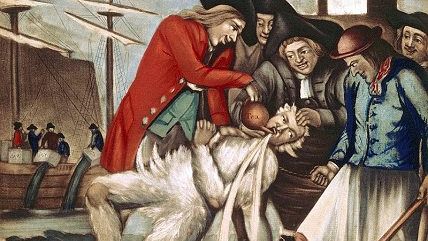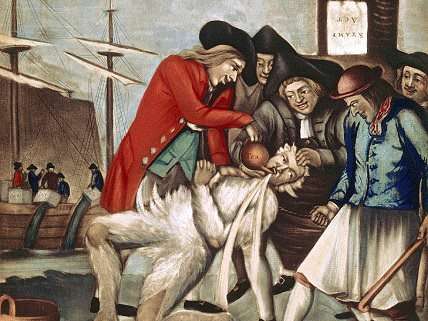Baylen Linnekin: The Bill of Rights Was About Food Freedom


On September 25, 1789—exactly 225 years ago today—Congress passed the ten amendments that make up the Bill of Rights.
Yes, the first ten amendments to the U.S. Constitution—the ones that protect everything from free speech to due process—originated as a series of bills in Congress. They were drafted by future president James Madison, at the time a congressman from Virginia. Madison also wrote the text of the Constitution, which had established a system of limited government but hadn't explicitly protected individual rights. With the Bill of Rights, it now did both.
What was the impetus for these revolutionary changes? Baylen Linnekin argues that one key element was spiraling British attacks on colonists' "food freedom."
Attacks on food freedom incensed the Founding Fathers. The list of grievances Thomas Jefferson articulates in the Declaration of Independence includes rebukes of King George for permitting British troops to "eat out the[] substance" of colonists' cupboards and for trampling on colonists' fishing rights.


Hide Comments (0)
Editor's Note: As of February 29, 2024, commenting privileges on reason.com posts are limited to Reason Plus subscribers. Past commenters are grandfathered in for a temporary period. Subscribe here to preserve your ability to comment. Your Reason Plus subscription also gives you an ad-free version of reason.com, along with full access to the digital edition and archives of Reason magazine. We request that comments be civil and on-topic. We do not moderate or assume any responsibility for comments, which are owned by the readers who post them. Comments do not represent the views of reason.com or Reason Foundation. We reserve the right to delete any comment and ban commenters for any reason at any time. Comments may only be edited within 5 minutes of posting. Report abuses.
Please to post comments
Mute this user?
Ban this user?
Un-ban this user?
Nuke this user?
Un-nuke this user?
Flag this comment?
Un-flag this comment?